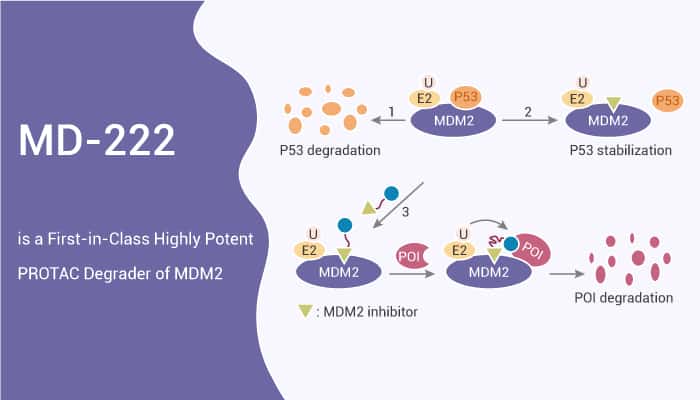PROTACs are heterobifunctional molecules that connect a POI ligand to an E3 ubiquitin ligase recruiting ligand with an optimal linker. Researchers reported the discovery of MD-222. MD-222 is the first-in-class highly potent PROTAC degrader of MDM2.
MD-222 induces rapid degradation of the MDM2 protein and activation of wild-type p53 in cells. Moreover, MD-222 potently inhibits cell growth in human cancer cell lines carrying wild-type p53. MD-222 potently and effectively inhibits cell growth in each of these three leukemia cell lines and is much more potent than their corresponding MDM2 inhibitors. MD-222 displays a high cellular specificity over cancer cell lines carrying mutated or deleted p53. Furthermore, MD-222 is very effective in reducing the levels of MDM2 protein and increasing the levels of p53. Treatment of the RS4;11 cells with MD-222 reduces the level of MDM2 and increases the level of p53.

MD-222 can reduce the levels of MDM2 in the RS4;11/IRMI-2 cell line carrying a mutated p53. MD-222 is effective in reducing the levels of MDM2 and activating wild-type p53 in RS4;11 cells. Treatment of the RS4;11 cells with MD-222 effectively induces depletion of MDM2 protein and currently accumulation of p53 protein in a dose-dependent manner. MD-222 is potent and effective in inducing depletion of MDM2 protein and accumulation of p53 protein in MV4;11 cell line, when compared to RS4;11 cell line.
Together, MD-222 is highly effective and potent in induction of MDM2 degradation and accumulation of p53 in both RS4;11 and MV4;11 cell lines.